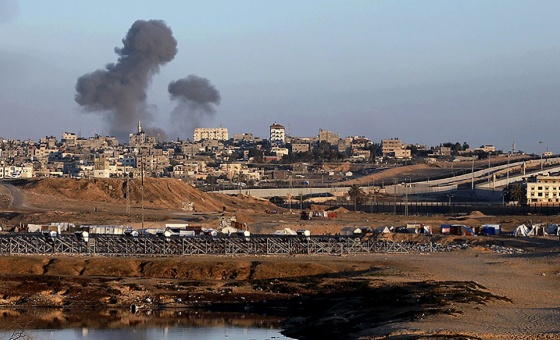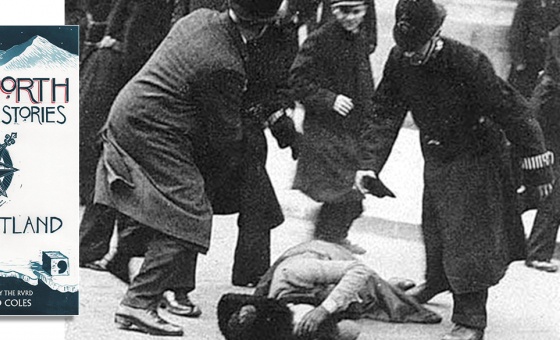THE fight to save the INF arms control treaty launched outside Parliament today could hardly be more important.
Generations who have grown up in Britain since the end of the cold war have no memory of nuclear war seeming a realistic threat, though from the 1950s to the ’80s the prospect of a war with the potential to wipe out the entire human race was all too real.
The 1987 Intermediate-range Nuclear Forces agreement between the United States and the Soviet Union saw short and medium-range nuclear weapons scrapped. Both countries (and Russia, since the collapse of the Soviet Union in 1991) have maintained huge nuclear arsenals, but doing away with “tactical” nuclear missiles has reduced the risk of their use.
US President Donald Trump’s reckless willingness to shred international agreements aimed at defusing conflict has been clear since before he entered the White House. His decision to walk away from the deal with Iran on the country’s nuclear energy programme showed contempt for Washington’s allies as well as for the protocols of international diplomacy.
The same was true of his decision to renounce the Paris agreement on limiting climate change, which also displayed an utterly irresponsible indifference to the scientific evidence that failing to drastically act on the global economy’s reliance on burning fossil fuels is going to have catastrophic consequences for us all in the very near future.
Ditching the INF treaty is of a piece with these earlier moves. But as CND warns, it is already provoking a new arms race between Russia and the US and will significantly raise the threat of a nuclear war.
Some of Trump’s advisers are blasé about that threat. Last year it was reported that the president is keen on building a “small” nuclear warhead (with around the destructive power of the bomb that incinerated Hiroshima) that would be a more effective deterrent to Russia because it would appear more “usable” than larger warheads. Others have discussed the potential use of such tactical nuclear bombs against China.
The consequences of normalising nuclear conflict in this way would be appalling. Even if the scale of a nuclear war could be limited to something less than the extinction of humankind, it is impossible to avoid civilian deaths on a massive scale when deploying weapons of such destructiveness and the decades of radiation poisoning leading to deformities and cancer rates among local populations are attested from the Hiroshima and Nagasaki bombs, as well as from the nuclear power disaster at Chernobyl.
In any case, the idea that such a war would be limited is optimistic. The likelihood is that a nuclear-armed country would respond to nuclear attack with nuclear counter-attack, whatever the scale of the initial assault.
The Ohio Republican congressman David Hobson said of George W Bush’s plan — thankfully defeated — for smaller nuclear weapons in 2004, “what worries me about the nuclear penetrator [as that proposed bomb was known] is that some idiot might try to use it.” The current occupant of the White House might plausibly do so.
CND’s demand that the British government commit to refusing the use of our territory to host US missiles is spot on. But longer term we need a serious overhaul of foreign policy that has led us to this pass.
The road to Trump was paved by Barack Obama’s penchant for drone assassinations on other countries’ territory, by George W Bush’s invasion of Iraq without any pretence of respect for the UN or international law, by Bill Clinton’s enthusiasm for dismembering Yugoslavia. Presidents aided and abetted in their criminal acts by successive British administrations.
The need for a different kind of foreign policy, one where international law is respected, differences are resolved by dialogue and the use of military force is confined to the defence of our territory and people rather than the interests of corporations, is urgently needed.











